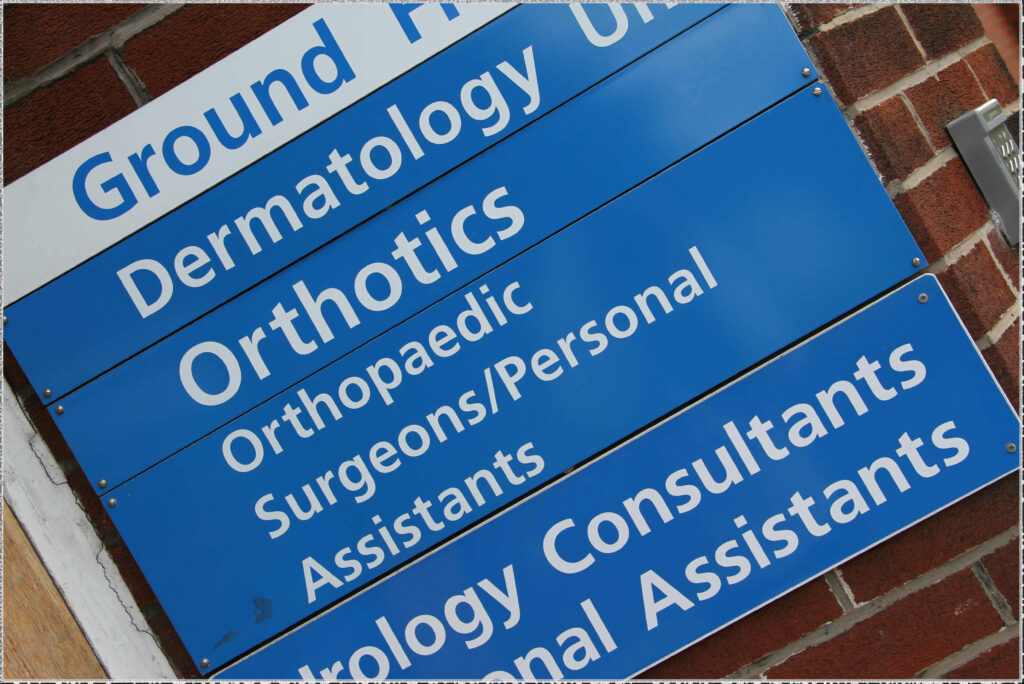By Anne-Marie Vine-Lott, Director of Health, Vodafone UK

Restoring public sector productivity is a national priority.
Recent ONS figures reveal productivity levels in the public sector considerably worsened in late 2023 – especially across healthcare and education – and to this day remain 6.8% lower than pre-pandemic levels.
The Office for Budget Responsibility believes returning to pre-pandemic productivity levels could save £20 billion a year – improving public service quality and reducing the burden on taxpayers. But how can we go about achieving this goal?
I strongly believe that safe, reliable, world-class connectivity is key for transforming public sector productivity and ultimately citizens’ experience. Each part of the public sector has its own challenges, but our breadth of experience and the flexibility of our technologies mean that we can innovate at a pace that works for all stakeholders, whether we’re talking about NHS patients and staff; students; citizens working with councils; or public services of any kind.
They all stand to benefit from top-tier connectivity and the roll-out of 5G.
Harnessing technology in healthcare
In healthcare, connectivity has a direct impact on patients’ abilities to access services, their experience navigating their care; and their ability to self-manage their health if they have a long-term condition.
Connectivity, whether mobile (4G/5G) or fixed, public or private, is fundamental for accelerating the adoption of new and existing technologies that facilitate these improvements. It’s why having the right underlying connectivity in place in every hospital and GP practice is key for them to run as efficiently and productively as possible – and we have already started to see what a connected healthcare ecosystem could look like.
In A&E departments across the country, Vodafone has partnered with eConsult Health to roll out eTriage – a self-registration system which is helping reduce waiting times and improve patient safety. Through the self-registration process, eTriage collects patients’ medical histories to quickly identify those that need medical attention most urgently, as well as reducing the general waiting time for emergency treatment. Overall, it makes waiting rooms safer, helps reduce workforce challenges, and means patients get seen more quickly.

It’s clear that hospitals need a network that can keep up with the growing demand from doctors and patients for faster, more accurate information. The latest technology can also help free up much-needed resource for time-poor and under-pressure healthcare workers.
Helping educators adapt to hybrid teaching
We all witnessed how vital it was for students and teachers to stay connected during the pandemic. Back then, it was hard to grasp the long-term impact on schools, universities, and students.
Now, recent figures from the Organisation for Economic Co-operation and Development (OECD) show that the lingering effects of lockdowns on education threaten to wipe £700bn off the global economy, potentially stunting growth for decades.
It’s essential, therefore, to ensure educators can deliver to their full potential in the post-pandemic hybrid teaching environment – so those students learning remotely can benefit just as much as those attending in-person.
Through Connected Education, Vodafone is helping educators with this new hybrid learning norm: helping them take smart, simple steps forward to deliver online education experiences seamlessly.
Using Vodafone’s ultra-low latency 5G network, we ensure that collaboration is still a key element of learning – even when not in the same room. With our partner Sensing Feeling, we provide many institutions with Emotive Sensing, to monitor the mood of the “room” during seminars. And with our scalable cloud Contact Centre as a Service system, we help universities across the UK remain productive in student recruitment, clearing, and student wellbeing.
Looking after local government
Local governments, who are working tirelessly to ensure services run smoothly against a backdrop of limited funding and increasing demand for services, need the best connectivity.
When COVID struck, Barrow Borough Council had to quickly adjust their ways of working. They worked with Vodafone and Centrality to safely integrate Microsoft’s suite of solutions, beginning with a cloud-readiness assessment to tailor the support to the council’s specific needs. This ensured a seamless transition to Microsoft 365, which the council still uses today for secure, collaborative, efficient operations.
In Kingston, we helped with a different, but equally significant issue: keeping the town clean from fly-tipping. Currently, financial pressures faced by councils means that local household waste and recycling centres (HWRCs) have to close – which inevitably leads to increased fly-tipping. With Vodafone’s Smart Wireless Camera, which supplies authorities with live surveillance of illegal dumpings, Kingston Council can now allocate their already limited resources, more effectively – and have seen a reduction in fly-tipping by 80% on average.
Transforming our public sector is within our reach. By making carefully considered investments in establishing smart, digital foundations we can support the adoption of new and existing technologies as well as collaborating with businesses who can offer the connectivity tools and expertise needed, we can restore our public services and unlock the productivity puzzle together.







Recent Comments